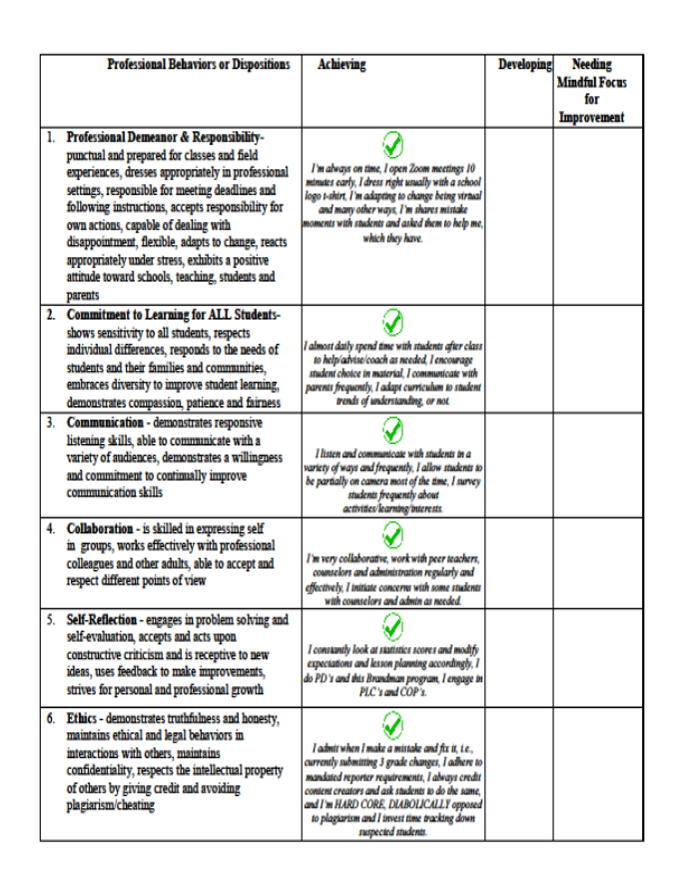For week #8 of Eduu624, I’m going to be looking at traditionally-crafted teaching dispositions and how they are STILL applicable for teachers, like myself, who are focusing on creating a 21st century class room and curriculum and teaching therein. So, the dispositions in question are Professional Demeanor & Responsibility, Commitment to Learning for ALL Students, Communication, Collaboration, Self-Reflection and Ethics. In short, all of these things need to be in play for any teacher regardless that teacher’s approach to their craft, to their profession. Unique to a 21st century setting, “professional demeanor & responsibility” is critical because one, a 21st century teacher is interacting with parents and representing not only themselves as an education professional, but the field of education in general as well as their school facility and district. Secondly, I believe a professional demeanor and responsibility is important for students, especially 21st century students, because we’re playing the role of hosts/facilitators/guides etc., it’s important that we look and behave professionally. “Commitment to learning for ALL students” is bigger than just 21st century teaching, but in a 21st century situation, is even more important. So much of 21st century learning is about a student centered approach and students working with teacher/facilitators to plan and monitor their own learning experiences, teachers need to be equipped to facilitate each and every one of those experiences across the board, for ALL students! “Collaboration” is also a core part of 21st century pedagogy but not only with peers as in COP’s and PLC’s but with their students. Teachers must collaborate with their students to chart the educational course but also monitor progress and adapt it as needed and teachers need to be willing and able to learn with their students. It’s not about teachers knowing everything!!! “Self-reflection” both individually and within COP’s and PLC’s is critical because you can’t know where you’re going until you know where you’ve been! If what you’re doing is causing your students to learn, great! But you’ll only know that if you take the time to reflect and observe results. Finally, we have “ethics.” Ethics are important across the board as well, both professionally for the same reasons I pointed out when discussing “professional demeanor and responsibility” but also to make our students feel respected, honored and most of all, safe! If they’re not feeling all three of those things, maximal learning cannot and will not happen. A 21st century class room and curriculum is vibrant and rigorous, our learners need to feel comfortable to be successful. All of these dispositions contribute directly and indirectly to the success of 21st century students.
Here's my ranking of myself:
Here's my ranking of myself:

 RSS Feed
RSS Feed
